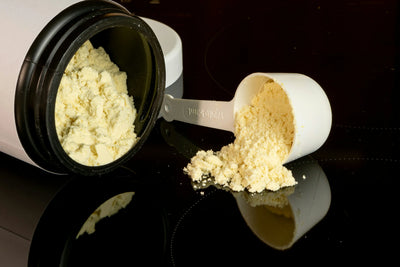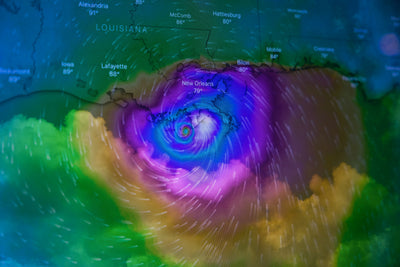Introduction
When your little puppy suddenly has a bulging stomach, a look of discomfort in his eyes, and even ignores his usual favorite toys, you as an owner must be heartbroken. Puppy bloat can be caused by eating too fast, indigestion or intestinal gas buildup, and can usually be relieved with some gentle home remedies. But don't forget that your puppy's health is as fragile as thin ice, and if the symptoms are severe or persistent, it's only wise to contact your veterinarian at the first opportunity.
Bloated Puppy Home Remedy
Here's a thorough guide that takes you through how to help your pup with bloat at home, while learning to recognize when you must turn to a professional.
Where Does Bloat Come from?
Your puppy's tummy is like a small balloon that can “blow up” if you're not careful. Common causes include
Eating problems: Puppies are greedy, gobble or eat too much, and gas builds up in the stomach when it's too late to digest.
Digestive problems or food intolerances: Certain foods may upset your puppy's stomach, such as high-fat or high-fiber foods.
Intestinal parasites: Especially in puppies adopted off the street, parasites may be behind the bloat.
Serious illnesses: The most worrisome ones, such as gastric dilatation-variation syndrome (GDV), are deadly emergencies that require immediate medical attention.
Knowing the cause can help you cope better, but in any case, try the following home remedies first, while remaining vigilant.
Gentle Home Remedies: Keeping Your Puppy Comfortable
1. Soothe the stomach with a gentle massage
Gently massaging your puppy's belly is like giving him a warm hug and can help expel built-up gas. Place the flat of your hand on his little tummy and gently make circles in a clockwise direction for a few minutes at a time. The movements should be gentle, like stroking a soft cloud. Watch your dog's reaction and if he seems uncomfortable or resistant, stop immediately and consult your veterinarian.
2. Walking helps digestion
Taking your puppy for a walk not only makes him happy, but also promotes intestinal peristalsis and helps the gas to “slip” out. Choose a flat route and walk slowly for 10-15 minutes, avoiding strenuous exercise such as running and jumping, which may aggravate the discomfort. Imagine you and your dog strolling leisurely in the sunset, its little tail wagging gently, what a healing picture!
3. Adjust diet to reduce the burden
Diet is the “key battleground” for bloat, and small adjustments can make a big difference:
Smaller, more frequent meals: Instead of letting your puppy eat a full meal, feed him small amounts of food 4-5 times to reduce the pressure on his stomach.
Choose easy-to-digest foods: Avoid high-fat, high-fiber foods for a while; try cooked chicken breasts or white rice, which are gentle and absorbent.
Slow food bowls: If your puppy eats like he's in a “food scramble”, switch to a slow food bowl to slow down the speed of eating and reduce gas swallowing at the source.
4. Probiotics, the “friendly helpers” of the intestinal tract
Probiotics are like the “scavengers” of the intestines, which can balance the bacterial flora, improve digestion and reduce the accumulation of gas. There are many probiotic products available at pet stores for puppies, so remember to check the safety of the ingredients when shopping. You can mix it into the food when feeding, for example, my puppy “DouDou” loves to eat yogurt mixed with probiotics and licks the bottom of the bowl every time!
5. Natural remedies, try them carefully
Some natural ingredients can also help, but use caution:
Peppermint tea: peppermint has anti-inflammatory properties and soothes the gut. Make a cup of peppermint tea, cool it to room temperature and let your pup lick a little bit (no more than a small spoonful at a time).
Ginger: ginger soothes bloat, so you can put a tiny bit of grated ginger (just a bit really!) mixed into food, or make some ginger tea for your dog.
WARNING: These natural remedies don't work for every dog, and it's best to consult your veterinarian before trying them for the first time to make sure they're safe.
Emergencies: These Signs Should Not Be Ignored
While most bloat can be relieved with home remedies, some conditions can signal a serious illness. Don't put off taking your puppy to the hospital immediately if he or she shows any of the following symptoms:
- Persistent or severe bloating with a stomach that feels hard to the touch.
- Frequent vomiting, diarrhea, or not eating or drinking at all.
- Depressed and so weak that he can't even stand.
- Shortness of breath or difficulty breathing.
- Abnormal behavior, such as irritability or unwillingness to move.
These can be signs of fatal problems such as gastric torsion and intestinal obstruction, especially gastric dilatation-torsion syndrome (GDV), which is uncommon in puppies, but when it occurs, the consequences can be unimaginable. My friend Xiao Li almost lost her Golden Retriever “Wang Cai” because she ignored her dog's severe bloat. Luckily, she was able to seek medical attention in time, and her dog turned out to be fine.
If you've already made an appointment with your veterinarian, here's what you can do before you go to the doctor:
Monitor the diet: Suspend feeding, provide only a small amount of water and watch for vomiting.
Keep quiet: keep your puppy in a quiet, comfortable place to avoid stimulation.
Record symptoms: Make a note of when the bloat starts, how long it lasts, and any other symptoms (such as diarrhea or lethargy); this information can be helpful to your veterinarian in making a diagnosis.
Avoid massaging: When the cause is unknown, a hasty massage may exacerbate the problem; don't touch the belly for a while.
Rather than waiting for bloat to come to you, it's better to start preventing the problem in the first place:
- Regular deworming: Especially if you have just adopted a puppy, remember to deworm on time to avoid parasites.
- Dietary transition: When switching to a new dog food, do it gradually, transitioning slowly over 7-10 days to protect your puppy's gut.
- High-quality food: Choose a high-quality puppy food that is easy to digest and avoid human food or cheap food.
- Controlled Exercise: Avoid strenuous running and jumping for an hour after meals to reduce gastrointestinal stress.
While bloat in puppies is upsetting, most cases get better with gentle home care and prompt veterinary intervention. More importantly, your companionship and careful observation are the greatest guarantees of your puppy's health. Every time I see DouDou splashing around in the grass, I feel that all those days of staying up late to look up information and accompanying him to the doctor's office were worth it.
If the bloat problem recurs or upsets you, don't hesitate to dial your veterinarian. May your puppy always be healthy and happy under your care and greet each day with his little tail wagging!

What to Feed Dog with Upset Stomach?
When your furry child suddenly lost its usual vitality, lying in a corner, eyes penetrating the uncomfortable, and even the favorite snacks do not touch, gastrointestinal discomfort may be the “main culprit”. The dog's stomach is like a delicate child, a little inattention may cause trouble. Whether it's a case of eating too fast, a food intolerance, or a minor digestive upset, the right dietary adjustments can help him regain his energy. This article will give you details on the right foods and care recommendations for dogs with IBS, helping you to soothe his little tummy with love and science. If the problem persists or worsens, remember to call your veterinarian!
Why Do Dogs Have IBS?
Gastrointestinal problems in dogs can be caused by a variety of reasons: eating too fast, accidentally eating inappropriate food, sudden food changes, or even stress can cause their gastrointestinal tract to “go on strike”. Common symptoms include diarrhea, constipation, loss of appetite or mild vomiting. In these cases, gentle, easily digestible foods are the key to easing the burden on the stomach and helping your dog recover slowly.
Mild Food List: Giving the Gut a “Hug”
Below is a list of foods that are gentle and nutritious for dogs with gastrointestinal distress, like a gentle soothing for their tummies:
1. White rice: “white moonlight” for the stomach and intestines
White rice is a simple, reliable, mild and easily digestible food that provides your dog with energy and soothes an upset stomach. Cooked softly, it tastes better and dogs love it. Whenever my little Corgi “Ball” has an upset stomach, a bowl of white rice will always give him a good appetite.
2. Chicken breast: low-fat, high-protein “savior”.
Cooked chicken breast is a good choice for low-fat, high-protein, easy to digest and not irritating. Remove the fat, cook it, tear it into thin shreds, and mix it with white rice at a ratio of 1:3 for a well-balanced and tasty nutrition. When Ball eats this, his tail wags like a small fan!
3. Pumpkin puree: a “harmonizer” for the intestines
Steamed pumpkin puree is rich in dietary fiber, can relieve diarrhea and constipation, like a gentle “mediator” to regulate intestinal function. Make sure to feed it without sugar or salt, just a small spoonful at a time. My friend's Labrador relies on pumpkin puree to cure the problem of repeated diarrhea. 4.
4. Cooked carrots: nutritious and gentle at the same time
Carrots are rich in fiber and vitamin A. When cooked, they are soft and easy to digest, which promotes gastrointestinal health. Cut them into small pieces or mash them into puree, and mix them with rice to feed your dog.
5. Millet porridge: a “warm soup” for the stomach and intestines.
Millet porridge is delicate and gentle, and can be called a “life-saving soup” for dogs with gastrointestinal discomfort. If you cook it thinly and feed it after it cools to room temperature, it will warm your stomach and make your dog feel comfortable.
6. Plain yogurt: a “natural factory” for probiotics
Unsweetened plain yogurt is rich in probiotics, which can help balance the intestinal flora and relieve discomfort. Choose yogurt without additives and mix it with food one small spoon at a time for best results. Ball licks the bottom of the bowl every time he eats yogurt!
7. Bone broth: replenish water and nutrients
Slow-cooked bone broth (remember to remove the fat) is light and nourishing for dogs who have lost their appetite. It replenishes water and minerals and warms the gut. Make sure the soup is cooled before feeding and don't add salt or seasoning.
8. Sweet potatoes: the gut's “treasure trove of nutrients”
Steamed sweet potatoes are rich in fiber and antioxidants, which promote the growth of healthy intestinal flora. Cut it into small pieces or mash it into puree, and feed it in moderation, the sweet taste of dogs usually like it.
9. Kelp: constipation “unclogging agent”
Kelp is rich in fiber and minerals, to relieve constipation has a miraculous effect. But the amount should be small, boiled and chopped, mixed in the food, to prevent excessive impact on the function of the thyroid gland.
Thoughtful Advice on Dietary Regimen
In addition to choosing the right food, the way you feed it is critical. The following tips can make your dog's stomach and intestines more comfortable:
Smaller meals: Divide the day's food into 3-4 feedings, a small amount each time, to reduce the gastrointestinal burden. For example, when Ball has gastrointestinal discomfort, I feed him 4 times a day, a small bowl of rice with chicken each time, and he recovers quickly.
Appropriate food temperature: Too cold or too hot food may irritate the stomach and intestines, room temperature or slightly warm is best. Try the temperature with the back of your hand before feeding, just like preparing milk powder for your baby.
Slow food change: If you need to change dog food or adjust the diet, use 7-10 days to transition gradually, so that the stomach has time to adapt. A sudden change in food can be the “enemy” of gastrointestinal discomfort!
Supplement with probiotics: In addition to yogurt, pet-specific probiotic powder is also very effective in accelerating intestinal recovery. Consult your veterinarian to choose the right product for better results.
What to Feed Dog with Upset Stomach?
Looking at the furry little guy listless lying on the carpet, usually happy wagging tail now wilted droop, as the owner is inevitably heartbreaking. Don't worry, as a “senior parent” who has experienced the gastrointestinal crisis of three puppies, I will combine veterinary guidance and practical experience to bring you a systematic understanding of how to help your baby regain vitality through dietary modification.
When your puppy is experiencing gastrointestinal alerts such as soft stools and vomiting, the first task is to establish a “Gut Repair Meal”. The first task is to create a “gut-healing meal” that follows the “3 Low Principles” - low-fat, hypoallergenic, and hypo-irritating - and ensures that basic nutrients are available.
1. Classic Recovery Meal: Chicken and Rice Paste
Take fresh chicken breast, remove the tendons and membrane, boil it until it is fully cooked and then tear it into thin shreds (do not add any seasoning). Combine with long grain aromatic rice and steam to make porridge, the rice broth can be reserved separately. For this combination, it is recommended to prepare a 7:3 meat to rice ratio per 100 grams of mixed meal, both for protein and to avoid intestinal burden.
Advanced Tip:
Use kitchen electronic scales to control the amount of food accurately (puppies need about 15-20 grams of meal per kilogram of body weight)
Chill the food to around 38°C before feeding (closer to canine body temperature makes it easier to digest).
Add 1 teaspoon of boiled carrot puree to enhance mucosal repair
2. Bowel regulator: pumpkin remedy
Choose old pumpkin, peel it and steam it, then make a fine paste with a food processor. This natural “intestinal regulator” is rich in soluble fiber, which can absorb excess water in diarrhea and promote peristalsis in constipation. Note that the daily intake should not exceed 2% of body weight, as excessive intake may cause flatulence.
3. Marine healing: cod oatmeal porridge
Steam deep-sea cod under water, remove the bones and meat, and pre-soak organic oats for 2 hours to simmer. The beta-glucan in oats can form a protective film in the intestinal tract, and with the Omega-3 fatty acids in the fish, it forms a natural anti-inflammatory combination. Especially suitable for sensitive puppies with recurrent soft stools.
In the first 12 hours of the acute phase, it is recommended that the gastrointestinal tract be completely fasted and not watered, so that the gastrointestinal tract can get sufficient rest. After resumption of feeding, “333 principles” should be mastered. 1:
1. Three portion control
Reduce the daily food intake to 30%, e.g. 100 grams per day, adjust to 10 grams per meal x 3 meals. Use a baby spoon to feed the baby accurately to avoid secondary damage to the intestinal tract.
2. 3-hour interval
Strictly maintain a 3-hour feeding interval, during which room temperature electrolyte water (1 liter of water + 1 gram of salt + 5 grams of glucose preparation) can be provided. This window of time maintains basal metabolism and allows for an adequate digestive cycle.
3. Three-day transition period
The transition from sick meal to regular diet needs to be gradual:
Day 1: 80% sick meal + 20% raw food
Day 2: 50% sick meal + 50% kibble
Day 3: 20% sick meal + 80% kibble
Pay special attention to any abnormalities during the conversion period to immediately fall back to the previous stage and contact your veterinarian to adjust the program if necessary.
Once the symptoms are initially relieved, functional nutritional supplementation can be introduced to help build long-term intestinal resistance:
1. Smart choice of probiotics
Choose products labeled “for dogs” and containing patented strains such as Bifidobacterium BB-12 and Lactobacillus LA-5. Use lukewarm water below 40℃ when brewing, and take it 1 hour apart from the main food for the best effect. It is recommended to take it twice a day during the acute stage and adjust it to 3 times a week for maintenance during the stabilization stage.
2. Secret of Bone Broth
The soup is made from ox tail bone + chicken claw slowly simmered for 12 hours, after filtering out the fat, the soup is rich in collagen and glucosamine. The “soup jelly” formed after refrigeration can be used as a snack reward, both hydrating and repairing the intestinal mucosa.
3. Herbal Healing Tea
0.5g chamomile + 0.3g peppermint leaves brewed in hot water at 80°C, cooled and used as a daily drink. This formula relieves intestinal spasms and is especially suitable for puppies with nervous diarrhea. Be careful not to drink more than body weight x 1ml per day.
- Stop home care and seek medical attention immediately when your baby develops any of the following conditions
- Persistent vomiting for more than 6 hours
Excretions are in the form of coffee grounds or with fresh blood in them - Obvious painful response to abdominal touch
- A fever of 39°C or higher
- Symptoms of dehydration (sticky gums, slow skin rebound)
Remember to bring it with you to your appointment:
- A record of the onset timeline
- Record of cell phone shots of vomit/feces
- A list of recent dietary changes
This information will help your veterinarian quickly and accurately determine the condition.
Create a Dietary Diary for Fur Kids to record daily ingredient types, eating times, mental status and feces. Conduct regular poop tests (quarterly is recommended) to keep abreast of the dynamics of the intestinal flora. When there is a change of season or change of staple food, add prebiotics to the drinking water in advance to help smooth the transition.
Each fur child is a unique individual and the program in this article needs to be adjusted according to the specific situation. May all little angels have steel stomachs and be healthy and happy by our side. If this guide is helpful to you, please share it with more pet parents in need, and let's work together to guard our furry children's happy stomachs.





